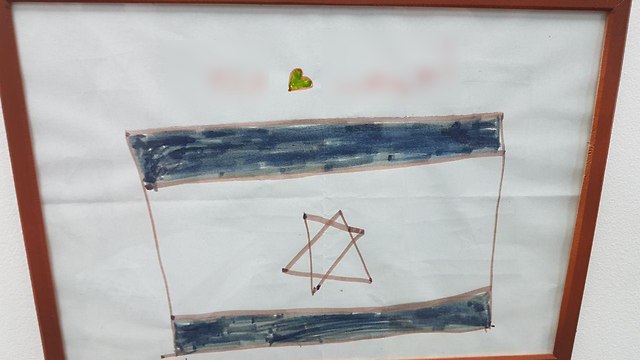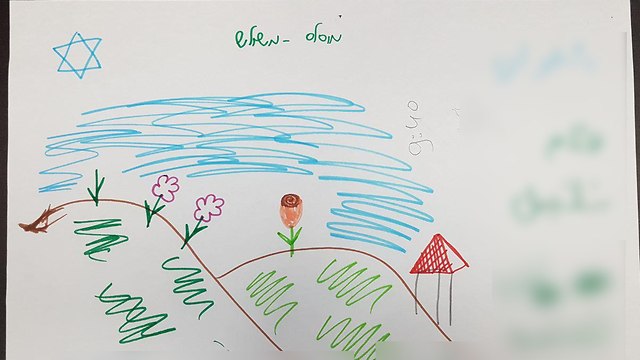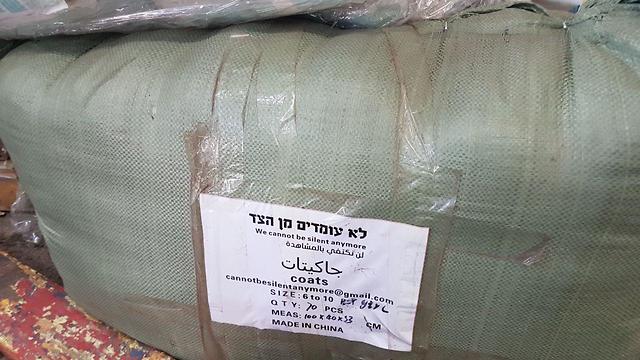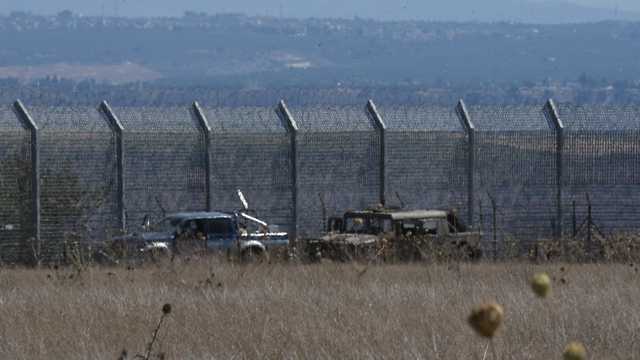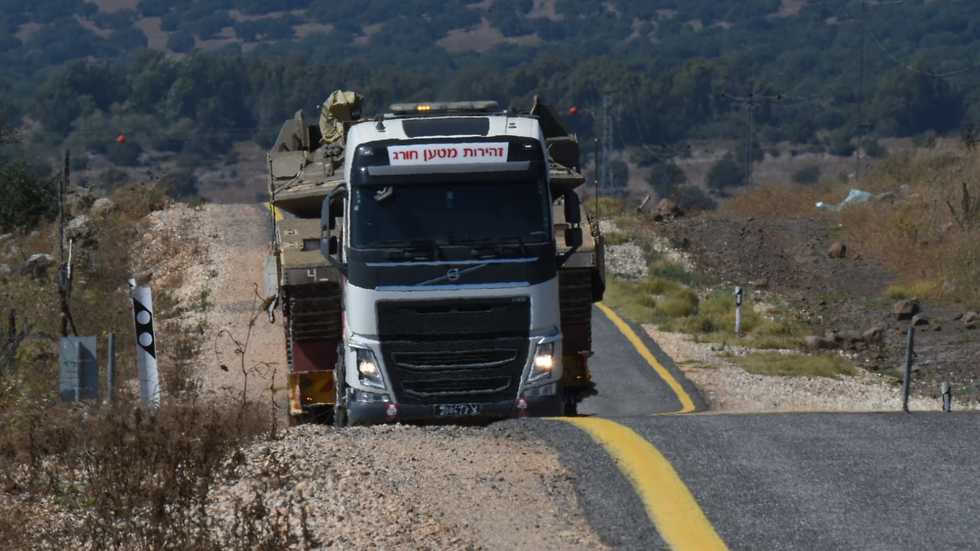by Denis MacEoin
Trapped by allegiance to a thoroughly outdated and discredited system of international law, unwilling to exchange fantasy for realism, the Palestinians have tried everything except for what might actually make them free and prosperous: true peace with Israel.
- Given that all Palestinian leaderships have called for a Palestinian state that will encompass and obliterate the state of Israel, it is not surprising that they cannot bear to accept any proposal that will give them only one small state (or two small states) in the territory allotted to them by the United Nations in 1947.
- Re-imposition of Islamic waqf law will not restore Spain, Portugal, Sicily, India, Greece and all the other states of the abandoned caliphal empires to Muslim rule, and it is futile to think that is nothing more than a fantasy.
- A recent US report revealed that there are, it seems, actually no more than 20,000 Palestinian refugees in the world.
- In the end, it is so-called pro-Palestinian activists such as Robert Fisk or writers for papers such as The Independent, The Guardian, or the New York Times who do their utmost to persuade the world to favour Palestinian intransigence over offers of upgrading lives and international law.
Anyone who cares for Israel, who aspires to peace, who has a good
understanding of the historical, ethical, political, and legal facts
that underpin the right of the Jewish people to a state of which they
are the indigenous people, will be familiar with the name of Robert
Fisk. But not in a good way.
For decades, Fisk has been one of the most unrelenting of Israel's many haters and one of the most uncritical supporters of the rights of the Palestinians and their unending calls and actions aimed at the total destruction of Israel and the expulsion or massacre of the Jewish people living there.[1]
Fisk is a clever man. He took his PhD in 1983 from Trinity College, Dublin, an ancient and respected university. Although his doctorate was in political science on a topic related to Ireland and Britain, he has worked as the Middle East correspondent for the Times (1976-1988) and, since 1989, for the left-wing daily, The Independent.
Over the years, he has reported on many wars in many countries and has written and co-authored many books about them, all of them about their conflicts.[2]
Given his Jack-of-all trades character, it is not surprising that Fisk does not always get his facts straight, and for this he has often been criticized by people with deeper knowledge, as here or here: He is opinionated, often in an extreme way, functioning more as an activist than a reporter. According to UKMediaWatch:
Fisk's obsession with Israel presents a threat to Jews elsewhere, as is well explained here by Britain's Community Security Trust, the country's leading body in charge of Jewish security:
Not surprisingly, Fisk was one of the first to condemn what was already known of the plan, but for all the wrong reasons. He focuses on the offer that the US, assisted by Israel, Saudi Arabia and perhaps others will underwrite a major financial input into the Palestinian economy, thereby easing the lives of millions and enabling the creation of a prosperous Palestinian state. Writing on June 28, Fisk arrogantly claimed that the deal "would strip the [Palestinian] people of all their dignity." His article begins thus:
Peace and prosperity, however, evidently mean little to Fisk and his ilk. There is, for him, something much deeper here. It is, essentially, the long-established belief, here endorsed strongly by Fisk, that the Palestinians are victims -- and, not only that, the most important victims of the entire world -- forcibly victimized by Western imperialism. This imperialism, according to him, made the former land of "Palestine" [in reality under the mandate of the British: everyone born there from 1920-1948 -- Jews, Christians and Arabs -- had Palestine stamped on his passport] supposedly a colony, built by the Jewish people after the Second World War, a view that totally disregards more than 3,000 years of both history and archeology. His view is, of course, by now a dogma that has become the basis for what is, for some inexplicable reason, the core campaigning issue for left-wing would-be revolutionaries across the globe, above all in Europe and North America. From that warped perspective, to offer the Palestinians a state (or two states) and to make their lives far better than anything they or their ancestors have ever known is to humiliate them.
There is no room to elaborate fully on what this means here, but some facts and views need to be aired. No one in history has humiliated the Palestinians more than the Palestinian leadership and its many acolytes, or the thousands of Palestinian men, women and youths who have gone out to commit suicide-bombings and a vast range of other attacks on innocent Jewish Israelis. The Israelis have spent more than 70 years fighting for their survival from the wars and terrorist attacks of the Palestinians and several Arab states. Tragically, it has for decades been a source of pride for Palestinians to say they have spent that long trying to destroy a state long yearned-for and established mere years since the Jewish Holocaust, even if that now means the slaughter of another six million and more.
The suicide bombings and other assaults that lead to Palestinian deaths demonstrate a society that values a corrosive status of martyrdom above the lives of children and young people who might have gone on to the true heroism of building a nation, as so many Holocaust survivors did when taming the land of Israel to create the powerhouse that it is today. What possible honour has there ever been for brainwashed youngsters blowing themselves to pieces in cafés or cutting the throats of babies? And why are these willing "martyrs" celebrated as rock stars, football heroes, models to be emulated by children, honorary exemplars of what it means to be Arab or Muslim?
Underlying this prioritization of sacrifice, even of one's own children is an Islamic concept embraced by all Muslim terrorist movements, including Hamas, that "we love death more than you love life". In a recent Friday sermon in Chicago, Dr. Ashraf Musairat denounced adherence to non-Islamic norms, saying it was humiliating to do so and insisting that:
Perhaps Robert Fisk can explain what honour accrued to Palestinians when, after being given one of the most generous peace offers in history, and after having all but guaranteed for himself the highest honour in the eyes of the world, Yasir Arafat walked away from the Camp David negotiations in 2000 and soon after started the second intifada that took so many lives on both sides? As President Bill Clinton later put it: "Arafat's rejection of my proposal after Barak accepted it was an error of historic proportions." Israel has made highly successful peace treaties with Egypt and Jordan. Would Fisk say that either the Egyptians or the Jordanians were humiliated by this? Quite the opposite, surely: President Anwar Sadat and King Hussein acquired the status of peacemakers. Anwar Sadat won the Nobel Peace Prize alongside his Israeli counterpart, Menachem Begin. King Hussein was admired for his long-term willingness to meet with Israeli officials on what was a long but dignified road to peace.
Israel has made many generous offers of peace and mutual assistance over the years, and has repeatedly offered to give up physical territory for airy promises of peace: by handing back Sinai to the Egyptians in 1979 or fully (and painfully) pulling out of Gaza in 2005. Agreements have been reached and offers made in 1949, 1979, 1994, 1998, 2000, 2000 again (re the Golan Heights), 2008, 2009, 2010, and to the present day.[3]
But the Palestinians -- including the current Palestinian Authority leaders of the Fatah in the West Bank and the intractable Hamas fundamentalist regime in Gaza -- have never let themselves be inspired by the Egyptian and Jordanian examples even to contemplate peace or collaboration to bring the Palestinian people to a better life. Next February, Israel will become the fourth country in the world to land a spacecraft on the moon. Meanwhile, Gazans persist in sending flaming kites -- some bearing swastikas -- across the border, causing severe damage to Israeli farmland and nature reserves. Does that bring honour to Hamas or its subjects? In their own eyes, undoubtedly; but for the rest of the non-Fisk world? Swastikas are not badges of honour, quite the opposite for the vast majority of people. Destroying the environment does not contribute in the smallest measure to making Gaza a better place in which to bring up children.
Palestinians and their supporters in the West often take to the streets chanting "From the River to the Sea, Palestine will be free". The river is the Jordan; the sea, the Mediterranean. The territory in between comprises Gaza, the West Bank (of the Jordan River), and the entire state of Israel. Since the Palestinians have claimed that, although they have no prejudice against Jews, they will not tolerate Jews currently living in settlements on the West Bank (Judaea and Samaria), and that they will never agree to live alongside Israel as a Jewish state, we must ask on earth it will ever be possible to envisage a Palestinian state at all.
At the heart of this dilemma lies a so-far unbridgeable breach between how Palestinians and their supporters and Israelis and their supporters view Israel and its surrounding territories, including the Hashemite Kingdom of Jordan. For the Palestinians, all Muslim states, and their Muslim supporters worldwide, the refusal to compromise rests on a basic assumption in Islamic shari'a law -- the principle that any territory, once ruled as an Islamic state, must never be allowed to pass out of Muslim hands. This is because such territory is considered a waqf, a term applied to any property or stretch of land dedicated as a religious trust in perpetuity. The principle behind this is set out clearly in Article 11 of the 1988 Covenant of Hamas:
Israel was brought into being on the basis of international law, first as a mandate territory through the League of Nations, then the United Nations in 1947. So was modern Syria. Likewise, Lebanon, Jordan, Iraq, Pakistan, Bangladesh, and many other Muslim and Arab states, as well as states in the Balkans and elsewhere. Tear away the fabric of international law and the treaties, conventions, and resolutions that knit it together, and any one of these could collapse through cross-national conflict. The Palestinian Arabs were offered a state in 1947, along with Israel. If they expect to have a state or states now, they can only do so on that basis. Re-imposition of Islamic waqf law will not restore Spain, Portugal, Sicily, India, Greece and all the other states of the abandoned caliphal empires to Muslim rule, and it is futile to think that is anything more than a fantasy.
Trapped by allegiance to a thoroughly outdated and discredited system of international law, unwilling to exchange fantasy for realism, the Palestinians have tried everything except for what might actually make them free and prosperous: true peace with Israel. As Bassam Tawil puts it:
A recent US report revealed that there are, it seems, only about 20,000 Palestinian refugees in the world.
Furthermore, it is precisely the insistence that Palestinian refugees from 1948 and generations of their descendants constitute a special category of refugee with their own refugee organization (UNWRA) that has served to perpetuate refugee status and to condemn these "refugees" to live in the humiliating conditions of refugee camps. If anyone has humiliated these people, it has not been Israel (where there are no such camps and Arabs are full and free citizens) but the host countries such as Lebanon, Syria, Jordan, Gaza and the West Bank, whose rulers impose restrictions that condemn these "refugees" to endless dependence on international aid, unable to build real lives through their own endeavours.
It is highly unlikely that Jared Kushner or President Trump will achieve what so many great statesmen have floundered at. The Palestinian leaders will resist to the bitter end and the last Palestinian standing. Even with Saudi Arabia's crown prince urging Mahmoud Abbas to work for peace in line with US and Israeli proposals, nothing will satisfy the Palestinian craving for either destroying Israel or abject victimhood.
In the end, it is so-called pro-Palestinian activists such as Robert Fisk or writers for papers such as The Independent, The Guardian, or the New York Times who do their utmost to persuade the world to favour Palestinian intransigence over offers of upgrading lives and international law. And this view itself is promoted by the belief that the West is to blame for just about everything wrong, and that non-Western people must never be asked to take responsibility for their actions or indeed just about anything.
[1] For an extensive archive of Palestinian media, religious, and political anti-Israel propaganda, see Palestinian Media Watch here.
[2] Eg: Pity the Nation: Lebanon at War on the civil war; Syria: Descent into the Abyss; The Age of the Warrior; The Arab Spring Then and Now: From Hope to Despair; Robert Fisk on Afghanistan: Osama Bin Laden; Robert Fisk on Israel: the Obama Years; Robert Fisk on Algeria; Robert Fisk on Egypt; The world of Robert Fisk: Volume 1: 1989-1998 from Beirut to Bosnia, Volume 2: 1999-2008 from Kosovo to Baghdad; The Great War for Civilisation: The Conquest of the Middle East; Islamic Extremism: Middle East in Crisis. He has also written articles on the Soviet and international wars in Afghanistan, the Iran-Iraq war, the ongoing Palestinian-Israeli conflicts, the Gulf War, the Kosovo war, the war in Bosnia, and the 2003 invasion of Iraq. These regions speak very different languages – Pashto and Dari/Farsi in Afghanistan, Arabic in very different dialectical forms in Algeria, Lebanon, and Iraq, Albanian and Serbian in Kosovo, Hebrew in Israel, and Persian (Farsi) in Iran. He may have learned some Lebanese Arabic during his years in Beirut, but linguistic limitations have surely restricted the expertise he might have in any one region. Despite this, he has published, not only articles but entire books on more than one area: Lebanon; Syria; Ireland; Northern Ireland; the Arab Spring in Tunisia, Egypt, Libya, Bahrain, Yemen and Syria; Afghanistan; Algeria and Algeria again; Egypt; the Middle East as a whole; and all the places from which he has reported.
[3] For full details of these offers, see Denis MacEoin, Dear Gary, Why You're Wrong about Israel: A Letter to an Anti-Israel Activist, London, 2012, pp. 38-45.
For decades, Fisk has been one of the most unrelenting of Israel's many haters and one of the most uncritical supporters of the rights of the Palestinians and their unending calls and actions aimed at the total destruction of Israel and the expulsion or massacre of the Jewish people living there.[1]
Fisk is a clever man. He took his PhD in 1983 from Trinity College, Dublin, an ancient and respected university. Although his doctorate was in political science on a topic related to Ireland and Britain, he has worked as the Middle East correspondent for the Times (1976-1988) and, since 1989, for the left-wing daily, The Independent.
Over the years, he has reported on many wars in many countries and has written and co-authored many books about them, all of them about their conflicts.[2]
Given his Jack-of-all trades character, it is not surprising that Fisk does not always get his facts straight, and for this he has often been criticized by people with deeper knowledge, as here or here: He is opinionated, often in an extreme way, functioning more as an activist than a reporter. According to UKMediaWatch:
Among other words we could use to describe Robert Fisk, he's clearly a curmudgeon, one who views the West's foreign policy towards the Middle East as a "cynical charade" without ever offering readers any insight into how a more noble, principled stance would take form. Though he's the Independent's Middle East 'analyst', he's more of a professional cynic than a learned student of the region. Moreover, though he feigns neutrality in his scathing attacks on political hypocrisy, his body of work clearly suggests that he sees some targets as more deserving of opprobrium than others.Over the years, his chief target has been Israel. Wars and terrorism have never really stopped there. For Israel-bashers, there never cease to be opportunities for scathing attacks -- witness the recent condemnations of Israeli defence measures on the Gaza border, some by Fisk himself.
Fisk's obsession with Israel presents a threat to Jews elsewhere, as is well explained here by Britain's Community Security Trust, the country's leading body in charge of Jewish security:
Writing in the Independent, Robert Fisk gives a startling example of anti-Israel obsession, expressed in words that are about Jews, not Israelis. In doing so, he illustrates how far Israel's most trenchant critics will go in order to focus scrutiny and disgust upon it, rather than other targets: in this case, the extremes of Jihadi terrorism. Given the links between anti-Israel agitation and antisemitic attack levels, this rhetorical trend / temptation brings obvious risks for Jews.Nothing seems to irritate Fisk more than attempts to bring about peace between Israel and the Palestinians, since no matter what is proposed it can never satisfy Palestinian demands. As is well known, since 2017 the United States administration has been working on a peace plan, under the supervision of Jared Kushner. The full details of the plan have not yet been revealed, but it has already come in for criticism. It need hardly be said that any peace plan for Israel and the Palestinians anyone has ever advanced has come in for criticism, not least unremittingly from the Palestinians and their supporters. Given that all Palestinian leaderships have called for a Palestinian state that will encompass and obliterate the state of Israel, it is not surprising that they cannot bear to accept any proposal that will give them only one small state (or two small states) in the territory allotted to them by the United Nations in 1947.
Not surprisingly, Fisk was one of the first to condemn what was already known of the plan, but for all the wrong reasons. He focuses on the offer that the US, assisted by Israel, Saudi Arabia and perhaps others will underwrite a major financial input into the Palestinian economy, thereby easing the lives of millions and enabling the creation of a prosperous Palestinian state. Writing on June 28, Fisk arrogantly claimed that the deal "would strip the [Palestinian] people of all their dignity." His article begins thus:
Is there no humiliation left for the Palestinians? After Oslo, after the "two state solution", after the years of Israeli occupation – of "Area A" and "Area C" to define which kind of occupation the Palestinians must live under – after the vast Jewish colonisation of land thieved from its Arab owners, after the mass killings of Gaza, and Trump's decision that Jerusalem, all of Jerusalem, must be the capital of Israel, are the Palestinians going to be asked to settle for cash and a miserable village? Is there no shame left?He continues in the same vein for almost three pages.
"How can he [Kushner] humiliate an entire Arab people by suggesting that their freedom, sovereignty, independence, dignity, justice and nationhood are merely 'politicians' talking points'? Is there no end to this insanity?"Insanity? To help put an end to a conflict of more than 70 years, one that has taken countless lives, including those of Palestinians, to bypass the greedy and intolerant Palestinian leadership by offering the Palestinian people a path to prosperity, peace, and lives they cannot today imagine for themselves? A peaceful resolution that could mean that the religious and nationalist fanatics who have ruled the Palestinian territories for so long may be pushed from illegitimate office and be replaced by a democratic system?
Peace and prosperity, however, evidently mean little to Fisk and his ilk. There is, for him, something much deeper here. It is, essentially, the long-established belief, here endorsed strongly by Fisk, that the Palestinians are victims -- and, not only that, the most important victims of the entire world -- forcibly victimized by Western imperialism. This imperialism, according to him, made the former land of "Palestine" [in reality under the mandate of the British: everyone born there from 1920-1948 -- Jews, Christians and Arabs -- had Palestine stamped on his passport] supposedly a colony, built by the Jewish people after the Second World War, a view that totally disregards more than 3,000 years of both history and archeology. His view is, of course, by now a dogma that has become the basis for what is, for some inexplicable reason, the core campaigning issue for left-wing would-be revolutionaries across the globe, above all in Europe and North America. From that warped perspective, to offer the Palestinians a state (or two states) and to make their lives far better than anything they or their ancestors have ever known is to humiliate them.
There is no room to elaborate fully on what this means here, but some facts and views need to be aired. No one in history has humiliated the Palestinians more than the Palestinian leadership and its many acolytes, or the thousands of Palestinian men, women and youths who have gone out to commit suicide-bombings and a vast range of other attacks on innocent Jewish Israelis. The Israelis have spent more than 70 years fighting for their survival from the wars and terrorist attacks of the Palestinians and several Arab states. Tragically, it has for decades been a source of pride for Palestinians to say they have spent that long trying to destroy a state long yearned-for and established mere years since the Jewish Holocaust, even if that now means the slaughter of another six million and more.
The suicide bombings and other assaults that lead to Palestinian deaths demonstrate a society that values a corrosive status of martyrdom above the lives of children and young people who might have gone on to the true heroism of building a nation, as so many Holocaust survivors did when taming the land of Israel to create the powerhouse that it is today. What possible honour has there ever been for brainwashed youngsters blowing themselves to pieces in cafés or cutting the throats of babies? And why are these willing "martyrs" celebrated as rock stars, football heroes, models to be emulated by children, honorary exemplars of what it means to be Arab or Muslim?
Underlying this prioritization of sacrifice, even of one's own children is an Islamic concept embraced by all Muslim terrorist movements, including Hamas, that "we love death more than you love life". In a recent Friday sermon in Chicago, Dr. Ashraf Musairat denounced adherence to non-Islamic norms, saying it was humiliating to do so and insisting that:
"All this is happening because of our distance from the religion of Allah, and because we love this world more than we love Allah and Islam, because we love our children more than we love making sacrifices for the sake of Allah, and because we love our spouses more than we love making sacrifices for the sake of Allah and Islam."Is this the sort of humiliation Robert Fisk says is being imposed on Palestinians?
Perhaps Robert Fisk can explain what honour accrued to Palestinians when, after being given one of the most generous peace offers in history, and after having all but guaranteed for himself the highest honour in the eyes of the world, Yasir Arafat walked away from the Camp David negotiations in 2000 and soon after started the second intifada that took so many lives on both sides? As President Bill Clinton later put it: "Arafat's rejection of my proposal after Barak accepted it was an error of historic proportions." Israel has made highly successful peace treaties with Egypt and Jordan. Would Fisk say that either the Egyptians or the Jordanians were humiliated by this? Quite the opposite, surely: President Anwar Sadat and King Hussein acquired the status of peacemakers. Anwar Sadat won the Nobel Peace Prize alongside his Israeli counterpart, Menachem Begin. King Hussein was admired for his long-term willingness to meet with Israeli officials on what was a long but dignified road to peace.

Pictured:
Egyptian President Anwar Sadat (left) and Israeli Prime Minister
Menachem Begin (right) acknowledge applause during a Joint Session of
Congress in which U.S. President Jimmy Carter announced the results of
the Camp David Accords, September 18, 1978. (Image source: Warren K.
Leffler/Library of Congress)
|
Israel has made many generous offers of peace and mutual assistance over the years, and has repeatedly offered to give up physical territory for airy promises of peace: by handing back Sinai to the Egyptians in 1979 or fully (and painfully) pulling out of Gaza in 2005. Agreements have been reached and offers made in 1949, 1979, 1994, 1998, 2000, 2000 again (re the Golan Heights), 2008, 2009, 2010, and to the present day.[3]
But the Palestinians -- including the current Palestinian Authority leaders of the Fatah in the West Bank and the intractable Hamas fundamentalist regime in Gaza -- have never let themselves be inspired by the Egyptian and Jordanian examples even to contemplate peace or collaboration to bring the Palestinian people to a better life. Next February, Israel will become the fourth country in the world to land a spacecraft on the moon. Meanwhile, Gazans persist in sending flaming kites -- some bearing swastikas -- across the border, causing severe damage to Israeli farmland and nature reserves. Does that bring honour to Hamas or its subjects? In their own eyes, undoubtedly; but for the rest of the non-Fisk world? Swastikas are not badges of honour, quite the opposite for the vast majority of people. Destroying the environment does not contribute in the smallest measure to making Gaza a better place in which to bring up children.
Palestinians and their supporters in the West often take to the streets chanting "From the River to the Sea, Palestine will be free". The river is the Jordan; the sea, the Mediterranean. The territory in between comprises Gaza, the West Bank (of the Jordan River), and the entire state of Israel. Since the Palestinians have claimed that, although they have no prejudice against Jews, they will not tolerate Jews currently living in settlements on the West Bank (Judaea and Samaria), and that they will never agree to live alongside Israel as a Jewish state, we must ask on earth it will ever be possible to envisage a Palestinian state at all.
At the heart of this dilemma lies a so-far unbridgeable breach between how Palestinians and their supporters and Israelis and their supporters view Israel and its surrounding territories, including the Hashemite Kingdom of Jordan. For the Palestinians, all Muslim states, and their Muslim supporters worldwide, the refusal to compromise rests on a basic assumption in Islamic shari'a law -- the principle that any territory, once ruled as an Islamic state, must never be allowed to pass out of Muslim hands. This is because such territory is considered a waqf, a term applied to any property or stretch of land dedicated as a religious trust in perpetuity. The principle behind this is set out clearly in Article 11 of the 1988 Covenant of Hamas:
The Islamic Resistance Movement believes that the land of Palestine is an Islamic Waqf consecrated for future Moslem generations until Judgement Day. It, or any part of it, should not be squandered: it, or any part of it, should not be given up. Neither a single Arab country nor all Arab countries, neither any king or president, nor all the kings and presidents, neither any organization nor all of them, be they Palestinian or Arab, possess the right to do that. Palestine is an Islamic Waqf land consecrated for Moslem generations until Judgement Day. This being so, who could claim to have the right to represent Moslem generations till Judgement Day?The meaning of this for Hamas is set out well by Dr. Samantha May of Aberdeen University in this article. It
This is the law governing the land of Palestine in the Islamic Sharia (law) and the same goes for any land the Moslems have conquered by force, because during the times of (Islamic) conquests, the Moslems consecrated these lands to Moslem generations till the Day of Judgement.
"proposes that Hamas' understanding of waqf as both God's land in perpetuity and the territorial justification for an independent Palestinian state challenged Western assumptions of national territory and the monopoly of legitimate violence."However, whether we date the modern international ordering of states, borders, treaties and the apportionment of territories from the 1648 Treaty of Westphalia that ended the Thirty-Years War, or the end of World War I in 1918, or the end of World War II in 1945 and the establishment of the United Nations in the same year, the fact is that international affairs are now deemed to be conducted and negotiated, not on the basis of any one religious law, but through the principles laid down in hundreds of documents, major legislation and international law.
Israel was brought into being on the basis of international law, first as a mandate territory through the League of Nations, then the United Nations in 1947. So was modern Syria. Likewise, Lebanon, Jordan, Iraq, Pakistan, Bangladesh, and many other Muslim and Arab states, as well as states in the Balkans and elsewhere. Tear away the fabric of international law and the treaties, conventions, and resolutions that knit it together, and any one of these could collapse through cross-national conflict. The Palestinian Arabs were offered a state in 1947, along with Israel. If they expect to have a state or states now, they can only do so on that basis. Re-imposition of Islamic waqf law will not restore Spain, Portugal, Sicily, India, Greece and all the other states of the abandoned caliphal empires to Muslim rule, and it is futile to think that is anything more than a fantasy.
Trapped by allegiance to a thoroughly outdated and discredited system of international law, unwilling to exchange fantasy for realism, the Palestinians have tried everything except for what might actually make them free and prosperous: true peace with Israel. As Bassam Tawil puts it:
By insisting on all Palestinian "national rights," including the "right of return," and by refusing to recognize Israel as the homeland of the Jewish people, the Palestinians are in fact signalling that their true goal is to see Israel removed from the Middle East. How do we know that they want to destroy Israel? Abbas says he sees Israel as a "colonialist project that has nothing to do with Judaism."Fisk makes much of this "right of return": "Right of Return. Forget it," he says in his article. But that is yet another fantasy. The European Court of Human Rights has just ruled that there is no such right (in the legal sense of a human right). Given that the overwhelming majority of people currently identifying themselves as Palestinian "refugees" have never set foot in the territory that became Israel.
A recent US report revealed that there are, it seems, only about 20,000 Palestinian refugees in the world.
Furthermore, it is precisely the insistence that Palestinian refugees from 1948 and generations of their descendants constitute a special category of refugee with their own refugee organization (UNWRA) that has served to perpetuate refugee status and to condemn these "refugees" to live in the humiliating conditions of refugee camps. If anyone has humiliated these people, it has not been Israel (where there are no such camps and Arabs are full and free citizens) but the host countries such as Lebanon, Syria, Jordan, Gaza and the West Bank, whose rulers impose restrictions that condemn these "refugees" to endless dependence on international aid, unable to build real lives through their own endeavours.
It is highly unlikely that Jared Kushner or President Trump will achieve what so many great statesmen have floundered at. The Palestinian leaders will resist to the bitter end and the last Palestinian standing. Even with Saudi Arabia's crown prince urging Mahmoud Abbas to work for peace in line with US and Israeli proposals, nothing will satisfy the Palestinian craving for either destroying Israel or abject victimhood.
In the end, it is so-called pro-Palestinian activists such as Robert Fisk or writers for papers such as The Independent, The Guardian, or the New York Times who do their utmost to persuade the world to favour Palestinian intransigence over offers of upgrading lives and international law. And this view itself is promoted by the belief that the West is to blame for just about everything wrong, and that non-Western people must never be asked to take responsibility for their actions or indeed just about anything.
Dr. Denis MacEoin has studied, lectured on, and written extensively about the Middle East for some forty-six years. He is a Distinguished Senior Fellow at the Gatestone Institute.
[1] For an extensive archive of Palestinian media, religious, and political anti-Israel propaganda, see Palestinian Media Watch here.
[2] Eg: Pity the Nation: Lebanon at War on the civil war; Syria: Descent into the Abyss; The Age of the Warrior; The Arab Spring Then and Now: From Hope to Despair; Robert Fisk on Afghanistan: Osama Bin Laden; Robert Fisk on Israel: the Obama Years; Robert Fisk on Algeria; Robert Fisk on Egypt; The world of Robert Fisk: Volume 1: 1989-1998 from Beirut to Bosnia, Volume 2: 1999-2008 from Kosovo to Baghdad; The Great War for Civilisation: The Conquest of the Middle East; Islamic Extremism: Middle East in Crisis. He has also written articles on the Soviet and international wars in Afghanistan, the Iran-Iraq war, the ongoing Palestinian-Israeli conflicts, the Gulf War, the Kosovo war, the war in Bosnia, and the 2003 invasion of Iraq. These regions speak very different languages – Pashto and Dari/Farsi in Afghanistan, Arabic in very different dialectical forms in Algeria, Lebanon, and Iraq, Albanian and Serbian in Kosovo, Hebrew in Israel, and Persian (Farsi) in Iran. He may have learned some Lebanese Arabic during his years in Beirut, but linguistic limitations have surely restricted the expertise he might have in any one region. Despite this, he has published, not only articles but entire books on more than one area: Lebanon; Syria; Ireland; Northern Ireland; the Arab Spring in Tunisia, Egypt, Libya, Bahrain, Yemen and Syria; Afghanistan; Algeria and Algeria again; Egypt; the Middle East as a whole; and all the places from which he has reported.
[3] For full details of these offers, see Denis MacEoin, Dear Gary, Why You're Wrong about Israel: A Letter to an Anti-Israel Activist, London, 2012, pp. 38-45.
Dr. Denis MacEoin has studied, lectured on, and written extensively about the Middle East for some forty-six years. He is a Distinguished Senior Fellow at the Gatestone Institute.
Source: https://www.gatestoneinstitute.org/12762/dignity-for-the-palestinians
Follow Middle East and Terrorism on Twitter
